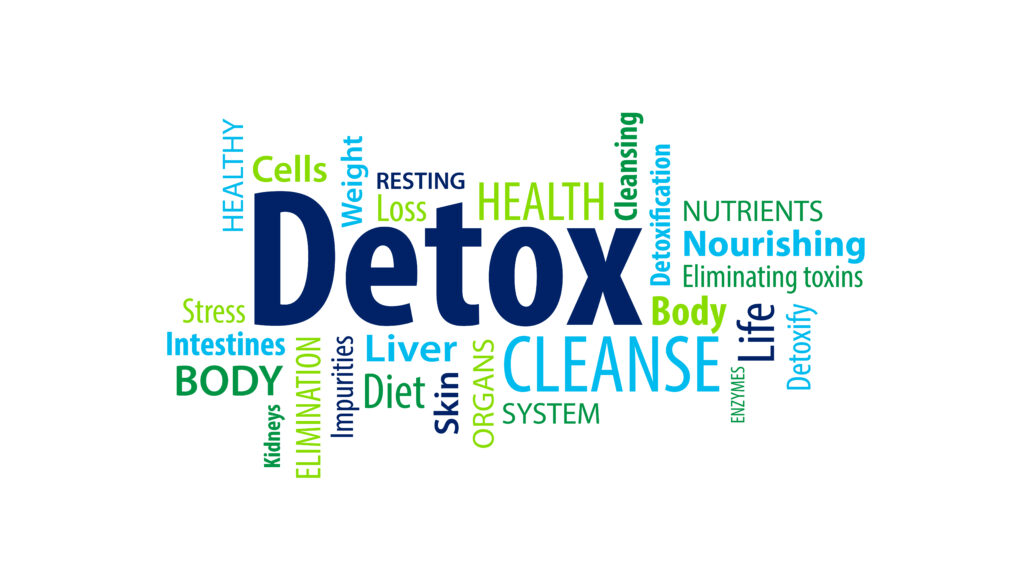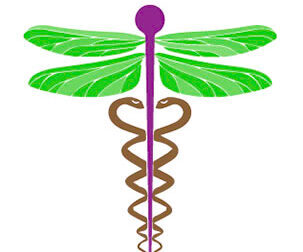
Detoxification
Detoxification is an important piece of our strategy for living a longer, healthier and more productive life, however our world has become more and more toxic and we are seeing the effects of this in our overall health as a population. The toxins we are bombarded with everyday include:
- glyphosate
- toxic chemicals in our food and water supply
- chem trails
- air pollution
- EMF’s
- 5G
- Vaccine injuries
- and Spike Protein
There is a massive increase of patients who exhibit autoimmune symptoms over the past two years and we believe it is because of an increase in environmental toxins as well as vaccine toxicity. Our bodies are unable to deal with these new types of toxins and many of us are seeing symptoms including things like hair loss, premature graying of hair, weight gain, weight loss, high blood pressure, dizziness and fatigue issues.
What are the 3 stages of detoxification?
Phase I
The liver is generally considered the most important organ for detoxification. Two of the key phases of detox – Phase I and II – occur here. Additionally, the liver also controls the synthesis and removal of cholesterol, plays a key role in regulating blood sugar, produces clotting factors, glycogen, release bile, destroys old red blood cells, stores vitamins and minerals.
The first phase of detoxification occurs mostly in the liver and helps to transform dangerous, lipid soluble molecules into less harmful intermediates products that will be easier to excrete. It the first line of detoxification and must occur prior to phase II. Phase I occurs largely due to cytochrome p450, a group of enzymes that enable the transformation of dangerous substances into less harmful substances through the chemical processes of oxidation, reduction, hydration, dehalogenation, and hydrolysis(8).
These chemical changes require the activity of cytochrome p450 enzymes, as well as a variety of nutrients to both support enzymatic activity and neutralize harmful molecules known as free radicals formed as a result of the processes. If free radicals are not neutralized, they can create inflammation. Many nutrients play a role in phase I and the neutralizing of free radicals, including a variety of B vitamins, amino acids, vitamin C, zinc, vitamin A, and flavonoids.(8)Genetic aberrations, also known as polymorphisms, can greatly influence the activity of p450 enzymes and affect their function(9).
Additionally, liver damage, nutrient deficiencies, and certain toxicants can all impair the activity of p450 enzymes, reducing the ability of the liver to detoxify.(10-12) Exposure to certain chemicals increase phase I activity, leading to high production of phase I end products; if these products are not converted by phase II, they can be incredibly harmful to cellular DNA and RNA; many studies have linked an increase of phase I activity and decreased phase II activity to diseases such as Parkinson’s and cancer(13-15).
Phase II
Phase II is the process of conjugation – the addition of a chemical group – to a by-product of phase I, making it water soluble, and therefore less harmful. Once it is water soluble, it can be excreted through kidney and intestines through urine and bile. There are many processes of conjugation, including glutathionation, methylation, glucuronidation, sulfation, and acetylation.
Each of these processes involves the addition of a different substance to a phase I end-product. Each requires specific nutrients, mostly amino acids, which we must obtain from our diet. Without these specific nutrients, phase II detoxification is impaired. If phase II detoxification is impaired, a build-up of phase I intermediates occurs, leading to inflammation and tissue damage.
Alternatively, if phase I and II occur effectively, toxins can be eliminated by the kidneys and bowels, via urine and feces.Although the liver is thought of as our primary detoxification organ, it requires a huge amount of nutrients that must be absorbed via the gut, in order to function optimally. The gut is also the initial site of exposure to orally ingested toxins. Due to these factors, we now recognize there’s an additional, third phase of detoxification, occurring primarily in the gut(16).
Phase III
Phase III refers to a highly concentrated anti-porter (transport) system of proteins in the body. There are many anti-porters being researched, particularly P-glycoprotein(16), an anti-porter in the small intestine that moves toxins from cells into the gut. Blood-brain protein is also located in the kidneys, blood brain barrier, and liver.(17) This transport system ensures movement of unwanted compounds out of the cell, and into detoxification organs.
A healthy diet and microbiome are key to the success of P-glycoprotein; gut inflammation leads to the production of endotoxins, specifically LPS, that can inhibit the activity of P-glycoprotein. If phase III is compromised, an accumulation of toxins within the cell occurs.(18) Errors in P-glycoprotein expression has been linked to Alzheimer disease and is suspected to play a role in stress management and inflammatory bowel disease.(19-21)
Due to these intricate connections between phase I, II, and III, inefficient detoxification in any of the three phases can be detrimental. We are beginning to test for genetic errors in detoxification and link impaired detoxification to a predisposition to certain diseases.
Clinically, early signs of poor detoxification are broad, including but not limited to: difficulty digesting fats, bad breath, acne, premenstrual cramping, hypoglycemia, environmental allergies, skin rashes, difficulty losing weight.
In response to the constant demand placed on our detoxification systems, living a life that consistently supports these three phases rather than focusing on detoxification sporadically through the year best serves us. There are many habits we can incorporate daily to support our hard-working detoxification pathways.
Toxicity Testing
We offer many types of toxicity testing from laboratories specializing in these types of tests like Great Plains Laboratory and Dr’s Data. They offer heavy metal testing, testing for pesticides, mold , glysophate and other environmental toxins which is usually done via saliva, urine or stool testing. These panels, while usually not covered by insurance, help to diagnose what toxins are causing your health problems ultimately allowing us to determine the best treatment plan for you.
Detoxification Protocols
We treat the following type of toxic poisoning:
- Heavy Metal Poisoning
- glysophate and graphine oxide poisoning
- Vaccine side effects
- Kidney Detox
- Liver Detox
- Skin Detox
- EMFs
- Long term detoxification programs for better health
- Long Haul COVID side effects
Help me Detoxify my body!
Fill out the form below and our capable staff will reach out to you as soon as we can. If you want to schedule an appointment, call 949-610-9950
